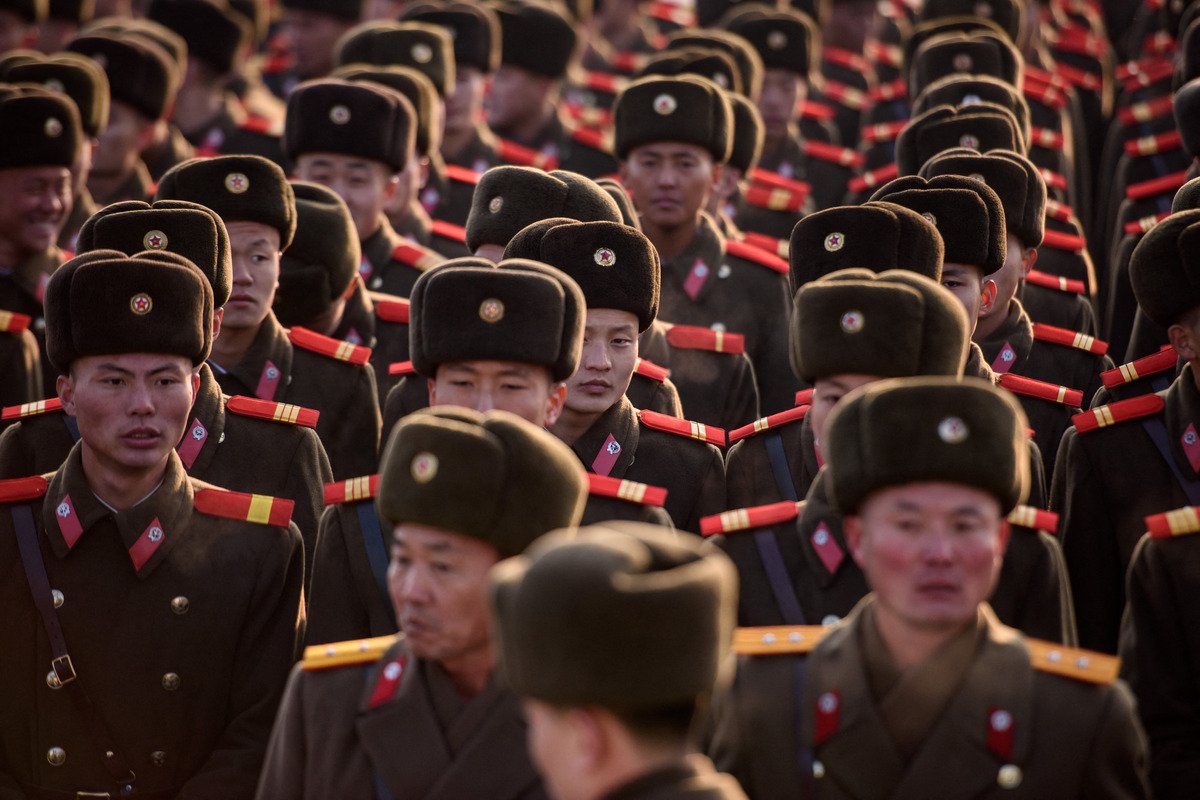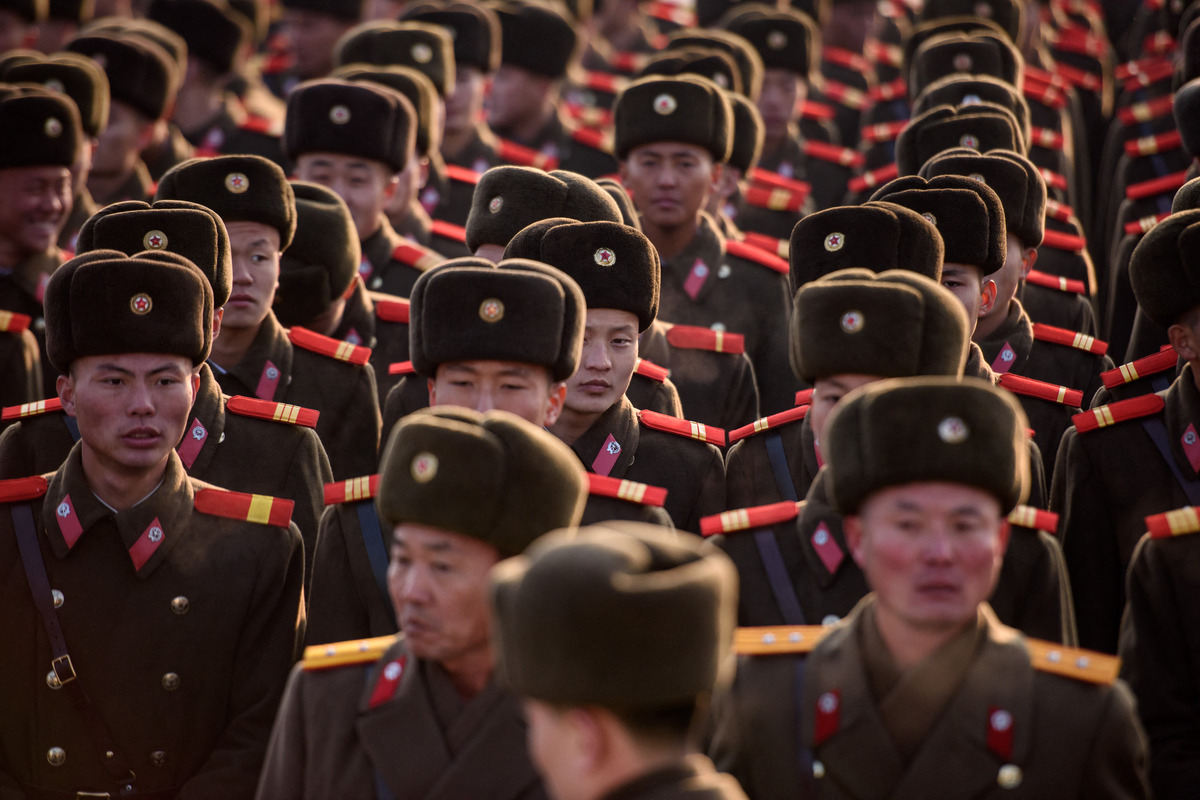Soldiers sent by Pyongyang to fight alongside Moscow’s troops in southern Russia “got drunk on New Year’s Eve,” Ukraine’s GUR military intelligence said, claiming “fighting spirit of North Korean soldiers has plummeted.”
Newsweek has reached out to the Russian Defense Ministry for comment via email.
Why It Matters
Between 10,000 and 12,000 North Korean soldiers were deployed to Russia in October to fight Ukrainian forces operating in the border Kursk region of Russia, Ukrainian, U.S. and South Korean intelligence said at the time.
NATO described the appearance of North Korean soldiers as a “significant escalation” in the conflict and a “dangerous expansion” of Europe’s largest land conflict since World War II.
It was not clear how much of a difference these soldiers would make at a moment when Moscow and Kyiv are looking for new ways to refill their ranks. While new to active combat, at least some of the fighters are believed to be from Pyongyang’s special forces.

Korean People’s Army soldiers pay their respects in Pyongyang on February 16, 2019. Ukraine’s military intelligence said the “fighting spirit of North Korean soldiers has plummeted.”
Korean People’s Army soldiers pay their respects in Pyongyang on February 16, 2019. Ukraine’s military intelligence said the “fighting spirit of North Korean soldiers has plummeted.”
ED JONES/AFP via Getty Images
What To Know
“On New Year’s Eve, cases of alcohol abuse were recorded among North Korean soldiers, including those involved in combat operations,” the GUR intelligence agency said in a post to messaging app Telegram on Thursday.
The GUR said the North Korean soldiers were being bombarded with Russian propaganda around the importance of Pyongyang’s support for Moscow’s war effort, but claimed: “The fighting spirit of North Korean soldiers has plummeted.”
North Korean soldiers were involved in fighting in Kursk between December 31 and January 1, but sustained “significant” casualties, the military intelligence agency added.
Moscow has been trying to peel back Ukrainian control of a chunk of territory in Kursk for months after the start of Kyiv’s surprise attack in August 2024.
Russia and North Korea signed a mutual defense pact in June last year, and Pyongyang has also provided a significant number of missiles and munitions for Russia’s war effort.
Russian commanders “are sending new North Korean soldiers to the front line” in Kursk, including the village of Ulanok, southeast of the town of Sudzha. Kyiv claimed Sudzha in the first days of the offensive in August, and still has control over the town, although it has lost its grip on territory elsewhere in Kursk.
North Korean soldiers have also been deployed to Fanaseevka and Cherkasskaya Konopelka, just west of Ulanok, the GUR said.
On Monday, the Pentagon said it agreed with an earlier White House assessment that roughly 1,000 North Korean soldiers had been killed or injured in Kursk so far. Ukrainian President Volodymyr Zelensky had said on December 23 that Pyongyang had already sustained 3,000 casualties in Kursk.
Zelensky said late last month that Ukrainian forces had captured “several” North Korean soldiers, but they were “seriously wounded and could not be resuscitated.”
White House National Security Communications Advisor, John Kirby, told reporters on December 27 that the U.S. had heard reported of “North Korean soldiers taking their own lives rather than surrendering to Ukrainian forces, likely out of fear of reprisal against their families in North Korea in the event that they’re captured.”
What People Are Saying
Ukraine’s GUR agency: “On New Year’s Eve, cases of alcohol abuse were recorded among North Korean soldiers, including those involved in combat operations.”
Ukraine’s Commander-in-Chief, Oleksandr Syrskyi, on Wednesday: “The enemy’s losses in the Kursk region amounted to more than 38 thousand personnel and more than a thousand pieces of equipment.”
Ukrainian President, Volodymyr Zelensky on December 27: “The North Korean military is involved in the fighting. They have many losses. A great deal. And we can see that the Russian military and the North Korean enforcers have no interest in the survival of these Koreans at all. Everything is arranged in a way that makes it impossible for us to capture the Koreans as prisoners – their own people are executing them, there are such cases.”
Russian President Vladimir Putin in October 2024, on reports of North Korean troops joining Russian forces after signing the mutual defense treaty: “This will be our sovereign decision regarding whether to put something into practice, as well as how and where to do so. We may choose to engage only in conducting exercises, training, and sharing certain experiences. This is entirely our own business.”
What Happens Next
Russia will likely continue prioritizing efforts to roll back Ukraine’s grip on Russian soil, including deploying North Korean soldiers.
